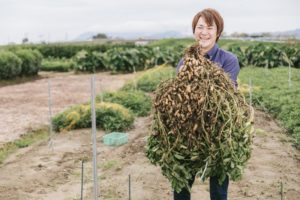“ten’nen” vs. “shizen” : How Do Native Speakers Use These?
What is the difference between “天然 (tennen) and 自然 (shizen)“? How do native speakers use these? After reading this, you would be answering this question. Let me introduce what their subtle differences are and how you correctly use them such as native speakers today!
天然 (tennen) / 自然 (shizen)
Nature / 天然, 自然 / 천연, 자연 / Thiên nhiên, Tự nhiên
Both “天然 (tennen)” and “自然 (shizen)” means “Nature” and which has been used as the meaning of “all the animals, plants, and other things in the world that are not made by people, and all the events and processes that are not caused by people”. Basically the ways to use them are pretty different from each other that “天然” is “天然___” or “天然の___”, “天然に___” such as “天然記念物(Natural monument)”, “天然温泉(natural hot spring)”, “天然ガス(natural gas)”, “天然のサプリメント(a natural supplement)”, “天然に出来たもの(a thing produced naturally). And “自然” is “自然は/が___”, “自然に___” such as “自然は美しい(The nature is beautiful.)”, “彼は自然に日本語を話す(He naturally speaks Japanese.)”. The tips for using these are “天然” sounds more special things, unlike “自然” such as “天然水(natural water)” and “自然水(natural water)”, “天然水” sounds better than “自然水” and I’d like to drink “天然水” than it. Furthermore, although we could say “この村は自然が豊かです(This village is rich in nature.)”, we don’t say “この村は天然が豊かです” which is wrong. And although we could say “天然記念物(Natural Monument) and 天然温泉(natural hot spring), we don’t say “自然記念物” and “自然温泉” which are wrong. Thus, “天然” is used as the meaning of “characters or qualities of nature” and “自然” is used as the meaning of “states of nature”. Lastly, “天然” has the other meaning which is “天然ボケ(blonde)” for people, especially girls, for instance, “本当に天然だよね(笑)” means “You’re so blonde. haha”.
\ Learn Japanese with a personal native teacher!/
Sample
いつも天然水を買ってるよ。 (I always buy natural mineral water.) (我总是买矿泉水。) (항상 천연수를 사고 있어.) (Lúc nào tớ cũng mua nước suối đấy.) (itsumoten’nen sui wo katteru yo.)


僕の髪は天パ(天然パーマ)なんだ。 (I have naturally curly hair.) (我的头发是自然卷。) (내 머리는 원래 곱슬머리야) (Tóc của tớ chính là Tempa (xoăn tự nhiên).) (boku no kami wa ten Pa(ten’nen pāma) na nda.)


この製品って天然素材でできてるんだって! (I’ve heard this product is all natural!) (本产品是采用天然材料制成!) (이 제품은 천연소재로 되어 있대!) (Nghe nói sản phẩm này được làm từ nguyên liệu thiên nhiên đấy!) (kono seihin tteten’nen sozai de deki teru n datte!)


ゆかって天然だよね!笑 (What an airhead! haha) (由香这个人很天然呢!笑) (유카는 순진하지! 하하.) (Yuka ngây thơ nhỉ! Ha ha) (yuka tte ten’nen da yo ne! wara)


自然が好きなんだー。 (I love being in nature.) (我喜欢大自然。) (자연을 좋아해.) (Tớ thích thiên nhiên lắm.) (shizen ga sukina nda-.)


自然が豊かな小さい村に住んでたよ。 (I used to live in a small village rich in nature.) (我住在一个富有自然风光的小村庄里。) (자연이 짙은 작은 마을에 살고 있었어.) (Tớ từng sống trong một ngôi làng nhỏ có thiên nhiên phong phú đấy.) (shizen ga yutakana chīsai mura ni sun deta yo.)


アレックスって日本語を自然に話してるよね? (Arex speaks Japanese naturally, doesn’t he?) (亚历克斯能够自然地说日语,对吗?) (알렉스는 일본어를 자연스럽게 구사하고 있지?) (Alex nói tiếng Nhật tự nhiên nhỉ?) (arekkusu tte nihongo woshizen ni hanashi teru yo ne? )


日本は自然が豊かだよ。 (Japan has a lot of nature.) (日本有丰富的大自然。) (일본는 자연이 풍부해.) (Nhật Bản có thiên nhiên phong phú lắm đấy!) (nihon wa shizen ga yutakada yo.)
\ Learn more! /









Comments